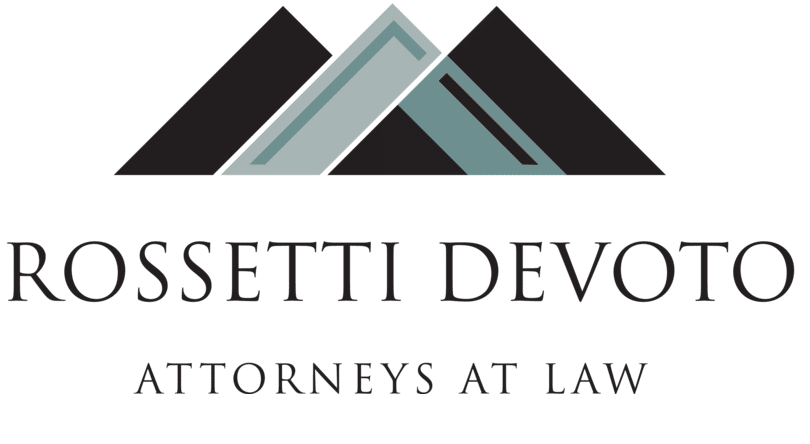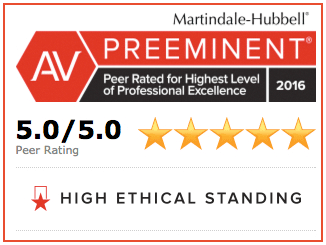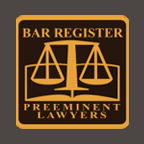ROSSETTI & DEVOTO, P.C. vigorously pursues claims against all public entities and employees arising out of their negligence in causing harm to others. This includes claims against the United States, individual States, Counties, Municipalities and School Districts for a multitude of failures that cause injury or death. There is a special law in New Jersey called the Tort Claims Act that controls what public entities can be sued and under what circumstances they can be held accountable for injuries caused by their negligent and wrongful acts. There is also a Federal law with its own Tort Claims Act that controls when and how the Federal government can be sued. It is imperative that you seek legal counsel immediately if you believe that you have a claim against a public entity.
Understanding the Tort Claims Act
The New Jersey Tort Claims Act, contained in Title 59 of the New Jersey law books, is the controlling law for bringing a lawsuit against a public entity. You can think of the Tort Claims Act as a book of laws that allows public entities to be sued in certain situations while also providing them with protections from lawsuits (immunity) in other situations. Enacting the Tort Claims Act became necessary because our laws, which were passed down from Old England where it was illegal to sue the King, originally prohibited citizens from suing governmental entities. To lessen the harsh effects of the old laws, the Tort Claims Act was enacted to allow our citizens to sue its own government, but only in limited circumstances. The Federal government has also enacted its own Tort Claims Act but it is much less restrictive than the New Jersey Tort Claims Act.
Public entities that are subject to the Tort Claims Act
Public entities are typically governmental entities as opposed to private entities. An example of a public entity is the State of New Jersey and all of its departments and divisions. Also, every county and municipality is considered a public entity in New Jersey. Public entities can be sued for their negligent conduct in certain circumstances. The entities that are typically subject to a lawsuit include the following:
- The Federal Government, including its departments and divisions
- The State of New Jersey, including its departments and divisions
- All 21 Counties in New Jersey, including its departments and divisions
- All 565 Municipalities in New Jersey, including its departments and divisions
- All state and local agencies, authorities and commissions
- New Jersey Turnpike Authority
- New Jersey Transit
- New Jersey State Police
- Water and sewerage authorities
- Public Fire Departments and Emergency Medical Transports
- New Jersey Sports and Exposition Authority
- Port Authority of New York and New Jersey
- Delaware River Port Authority
- Casino Control Commission
- School Districts and Boards of Education
Types of cases allowed under the New Jersey Tort Claims Act
The New Jersey Tort Claims Act allows certain cases to be filed against public entities. At the same time, the Act limits or immunizes public entities for other types of conduct. That means, even if the public entity or employee was wrong, they cannot be sued or held accountable for the damage. Often times, there is a very fine line between what is allowed and what is immunized. The right lawyer can make a big difference in whether your claim is accepted just by the way they present the claim and draft the Complaint. Cases that we typically file under the Tort Claims Act most often fall into the types listed below:
- Dangerous conditions of public lands, buildings and parks
- Dangerous and poorly maintained roadways, sidewalks, bridges and guardrails
- Failing to warn and/or correct dangerous conditions
- Negligence of lifeguards at public pools, recreational facilities and schools
- School district negligence caused by employees of the school
- Negligent supervision by public employees including school officials and security officers
- Negligent inspections that cause dangerous conditions of property to exist
- Negligence of public employees in the everyday, routine functions of their jobs
- Police pursuits and police chases that violate a citizens civil rights
- Vehicle crashes caused by public employees including police officers and New Jersey Transit
- Medical doctors and nurses working for a public hospital or public employer
- Cases against prisons, prison officers and prison guards
- Dangerous conditions of property at United States Post Offices, military bases and other properties owned and operated by the United States of America
- Negligent acts of any kind by any employee of the United States of America
The top rated trial attorneys at ROSSETTI, DEVOTO, P.C. have pursued and won many cases against public employees and public entities including the United States of America, the State of New Jersey, counties and municipalities, local school boards, NJ Transit, PATCO, SEPTA, PATH, local and state police, and many more.
Recoverable Damages against a public entity or government entity
The attorneys at ROSSETTI & DEVOTO, P.C. can help you recover various damages in a case against a public entity. Damages that may be recoverable against a public entity include the following types of compensation:
- Pain and suffering (physical and emotional)
- Disability and impairment
- Reduced quality of life
- Lost wages (past and future)
- Unpaid medical bills
- Loss of companionship and loss of consortium of a spouse
In order to maximize your recovery, our lawyers get personally involved in your case. We get to know you and your family so we have an understanding of exactly how your injuries affect you on a daily basis.
Limits on damages recoverable against a public entity
The New Jersey Tort Claims Act limits damages in important ways. In order to recover pain and suffering damages you must have a permanent loss of a bodily function, permanent disfigurement or dismemberment that significantly impacts your life as well as medical treatment expenses in excess of $3,600. If your case does not meet these requirements, you can still seek damages for economic losses like medical bills and property damage, but you cannot seek damages for pain and suffering. In addition, you are not permitted to receive any duplicate damages. For example, if you incurred medical bills that were paid by your private health insurance, you may not claim them as damages in your case against a public entity. There are no limits to recovering pain and suffering damages under the Federal Tort Claims Act.
The importance of notifying a public entity of your potential claim
In New Jersey, an injured person or their representative must give written notice to the public entity of their potential claim. This is called a Notice of Tort Claim. A Notice of Tort Claim is simply a form that either the injured party or his representative must fill out so that the public entity knows that you may bring a lawsuit at a later date.
In New Jersey, you MUST file a Notice of Tort Claim against the proper public entity within 90 days of the “accrual of the cause of action.” The word “accrual” has a special meaning under the law but to be extra conservative, you should think of it as being the date of the incident and seek legal advice well before that 90-day period expires. Important exceptions apply to when an action accrues including for minors and wrongful death actions. In rare circumstances, the 90-day deadline can be extended up to one year by a judge. If you fail to provide proper notice to the responsible public entity, it is very likely that you will lose your right to file a lawsuit at a later date.
After providing the proper notice, a claimant must wait another six months before filing a lawsuit against the public entity. This gives the public entity the ability to investigate your claim and perhaps offer to settle the claim before a lawsuit.
The Federal Tort Claims Act also has a notice requirement but the time limit is much longer and less restrictive.
Information contained in the Tort Claims Notice
The Tort Claims Notice in New Jersey requires you or your representative to provide basic information that includes your name, address, date, time and place of the accident, the public entity you claim is responsible, how the accident occurred, the nature of your injuries, your medical treatment and a damages demand. Most public entities have their own tort claim form on their websites that can be downloaded. Filing the Tort Claim Notice incorrectly or with the wrong public entity is a serious problem that may prevent you from being able to file a lawsuit at a later date. It is critical that the Notice of Tort Claim be filed correctly to protect and preserve your right to file a lawsuit at a later date.
The Federal Tort Claims Notice is much more detailed and requires extensive information and documentation to be filed with the notice form.
I am not sure I have a case. Do I still need to file the Notice of Tort Claim?
Even if you are not sure about whether or not you have a case or want to pursue a case against a New Jersey public entity, it is important to file the Notice of Tort Claim. If it is not filed within 90 days after the cause of action accrues, you may be barred from filing a lawsuit against the public entity. If you were injured due to the negligence of a public entity or public employee, or due to the dangerous condition of public property, contact a lawyer immediately for help in properly filing a Notice of Tort Claim. The potential lawsuit does not have to be filed within 90 days. In most cases, you will have up to two years in which to file the lawsuit.
Contact a lawyer familiar with the Tort Claims Act
You probably have many questions regarding your rights to bring a claim under the Tort Claims Act. It is a difficult set of laws to navigate, even for attorneys who may be unfamiliar with its requirements. Cases must be framed and presented in a very special way to comply with the Act. The experienced personal injury attorneys at ROSSETTI & DEVOTO, P.C. are very familiar with the Tort Claims Act and will move quickly to protect your legal rights. We have successfully prosecuted many Tort Claims Act cases against government entities with a proven string of victories in a wide variety of cases against all types of public entities.
We welcome your calls and would be happy to meet for a free initial consultation at no obligation. We work on a contingency fee basis and expend all costs of the litigation. Below are a few examples of how our team of lawyers at ROSSETTI & DEVOTO, P.C. have held public entities accountable for injuries they caused to our clients.
Recent Claims We Have Successfully Resolved Against Public Entities
Results may vary depending on your particular facts and legal circumstances
$2.4 Million for negligent police search after failing to follow their own guidelines and procedures
$1.9 Million settlement for drowning death caused by life guard negligence at local Burlington County school district
$1.85 Million settlement for crash caused by Monmouth County bus driver
$1.5 Million verdict for hazardous roadway in Cumberland County
$1.5 Million settlement after State Police officer negligently crashes into motorcycle rider
$600,000 settlement for injuries sustained on dangerous condition of federal lands at Joint Base-McGuire, Dix, Lakehurst
$450,000 settlement for negligent supervision in high school sports







